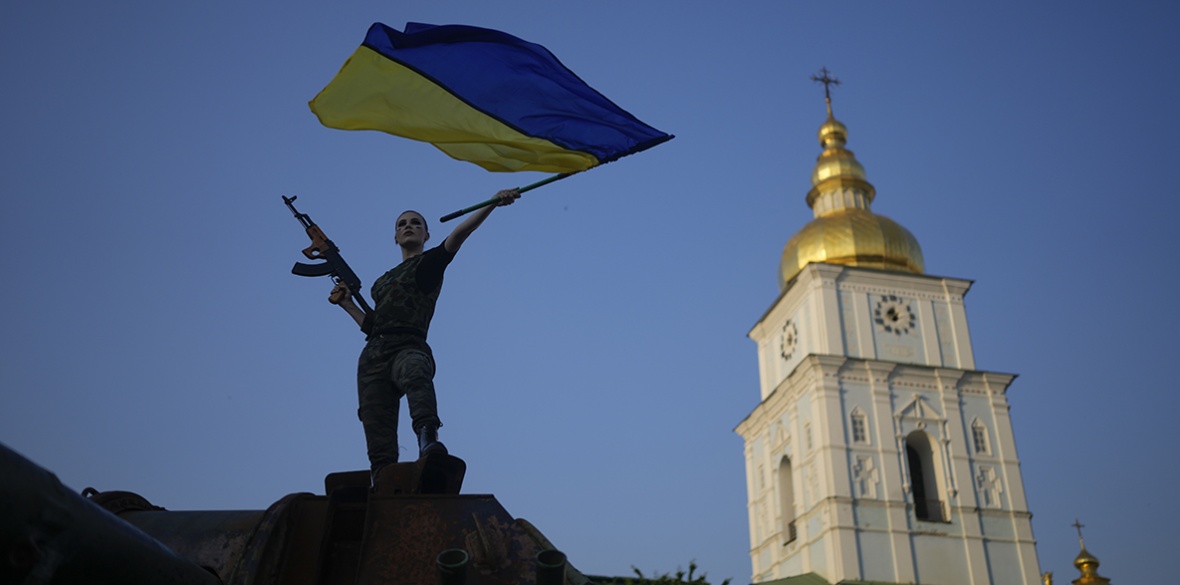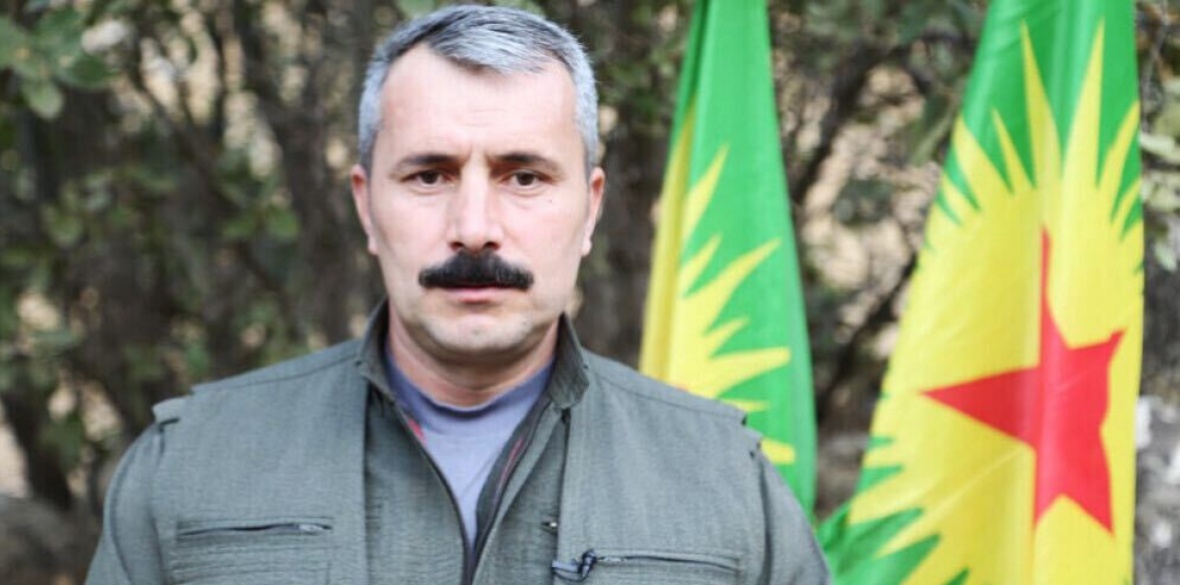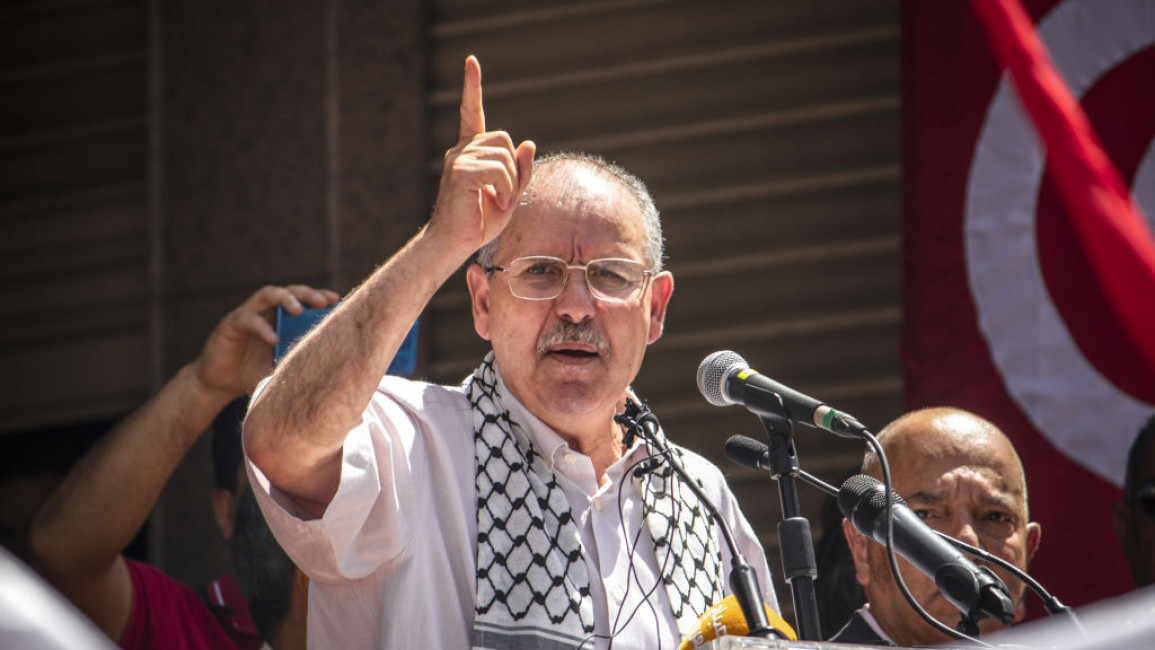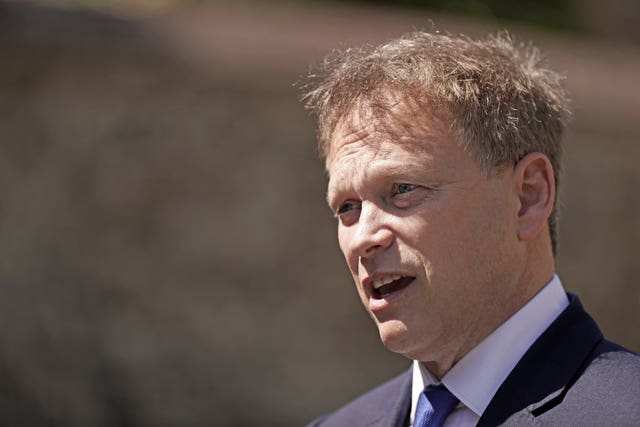US asked to explain after Pentagon admits to operating 46 biolabs in Ukraine after months of denial

A woman brandishes the Ukrainian flag on top of a destroyed Russian tank in Kyiv, Ukraine, Friday, June 10, 2022
WASHINGTON has been urged to come clean over its biolab programme in Ukraine after the Department of Defence admitted its existence.
The Pentagon said on Thursday that it has operated 46 biolabs in Ukraine handling dangerous pathogens, after previously dismissing the charges as Russian propaganda.
China has joined calls for United States to explain the role and capacity of the laboratories following the Pentagon’s stunning reversal after months of denial.
In March leaked papers appeared to suggest that its operations in Ukraine were sensitive while Kiev was reportedly blocked from public disclosure about the programme.
According to a document signed between the two nations, Ukraine is obliged to transfer the dangerous pathogens to the US Department of Defence for biological research.
Those who had raised concerns over the presence of the biolabs have been dismissed as conspiracy theorists and accused of regurgitating Russian disinformation.
But comments made by US Deputy Secretary of state Victoria Nuland in March prompted further suspicions when she appeared to confirm the biological programme, saying she feared the labs would “fall into Russian hands.”
China’s Foreign Ministry spokesman Zhao Lijian said on Friday that the US must explain its activities and called on it to stop “single-handedly opposing the establishment of a verification mechanism for the Biological Weapons Convention (BWC).
“As I stressed time and again, the US conducts more bio-military activities than any other country in the world.
“Moreover, the US is the only country opposing the establishment of a verification mechanism for the BWC.
“The international community has long had concerns over this. Recently, Russia has further revealed the US’s bio-military activities in Ukraine, and raised clearly that the US has violated the BWC.
“According to the stipulations of the BWC, the US is under an obligation to provide clarifications on Russia’s allegation so as to restore the international community’s confidence in the US’s compliance,” he said.
Washington denies Russian claims that it has experimented on humans after it was alleged that testing of pathogens was carried out on psychiatric patients from Kharkiv.
The United States has been accused of engaging in biological warfare in the past.
Late Cuban leader Fidel Castro claimed that its operatives had introduced swine fever and dengue fever into the country, with a previously unknown strain of the latter created in a laboratory.
The aim was to create “the largest number of victims possible,” he said.
Former Daily Worker international correspondent Alan Winnington and Australian journalist Wilfred Burchett were accused of treason and had their passports cancelled after exposing the US biological war in Korea in the 1950s.
Despite the denials, an International Scientific Commission headed by Cambridge University’s Professor Joseph Needham concluded that China and North Korea had been subjected to bacteriological weapons.







:quality(70)/cloudfront-eu-central-1.images.arcpublishing.com/thenational/QMOB4WECR3AGGZKYKJMKVLXHQA.jpg)





:quality(70)/cloudfront-eu-central-1.images.arcpublishing.com/thenational/ZPOIZCHEBOLOXULNLZHAY3266A.jpg)
:quality(70)/cloudfront-eu-central-1.images.arcpublishing.com/thenational/Z43N5GK4ASTMZJ2E6LDYEYWDCE.jpg)
:quality(70)/cloudfront-eu-central-1.images.arcpublishing.com/thenational/SYRATGKP3UTW6GJLCRL7BWZXHI.jpg)
:quality(70)/cloudfront-eu-central-1.images.arcpublishing.com/thenational/LGKPGUUD6HRTT4KQMMCUFHIALA.jpg)
:quality(70)/cloudfront-eu-central-1.images.arcpublishing.com/thenational/QWMJDSIWLSQWGWDYVMM4EZMNDE.jpg)
:quality(70)/cloudfront-eu-central-1.images.arcpublishing.com/thenational/3N3M7HYPGCXXCQNFZAGKYKIUIY.jpg)
:quality(70)/cloudfront-eu-central-1.images.arcpublishing.com/thenational/3OQDJVOA5BEQU75WTYPMFTEK4Y.jpg)
:quality(70)/cloudfront-eu-central-1.images.arcpublishing.com/thenational/EUVIMRF33IG2P324XYAPW2C6UM.jpg)
:quality(70)/cloudfront-eu-central-1.images.arcpublishing.com/thenational/IPVUPWOLERBKMX4M36T6NMG5HQ.jpg)
:quality(70)/cloudfront-eu-central-1.images.arcpublishing.com/thenational/MO5ETZJY4NOAAASZO7JYOHR37Y.jpg)
:quality(70)/cloudfront-eu-central-1.images.arcpublishing.com/thenational/EBWFQWOL2OIJ5HS3DYG6SUI5HM.jpg)
:quality(70)/cloudfront-eu-central-1.images.arcpublishing.com/thenational/MDXMP2KRJHSC4ROQYVZLUXTPSI.jpg)
:quality(70)/cloudfront-eu-central-1.images.arcpublishing.com/thenational/UEXZ4T3JZ4NOXABJ2VDJW5VXAU.jpg)
:quality(70)/cloudfront-eu-central-1.images.arcpublishing.com/thenational/H2SNCMXKRMWXWZT26KP6SW5RS4.jpg)
:quality(70)/cloudfront-eu-central-1.images.arcpublishing.com/thenational/AUXBKHLQ4RTZSGYZUP6VAIY7BM.jpg)
:quality(70)/cloudfront-eu-central-1.images.arcpublishing.com/thenational/KYPOAT7MB53UJCWGCIRO44L4ZA.jpg)
:quality(70)/cloudfront-eu-central-1.images.arcpublishing.com/thenational/QP55KHJZRWVIGFBN4VBLA76PQM.jpg)
:quality(70)/cloudfront-eu-central-1.images.arcpublishing.com/thenational/UK67HMHV5WEMQYBLYP65WVQY2I.jpg)
:quality(70)/cloudfront-eu-central-1.images.arcpublishing.com/thenational/W75GJ7C7DV75MAQJRK2WXLDKDQ.jpg)
:quality(70)/cloudfront-eu-central-1.images.arcpublishing.com/thenational/KVGPT4GCTWDOA5W2B3NAHARZGA.jpg)
:quality(70)/cloudfront-eu-central-1.images.arcpublishing.com/thenational/ZA6ZL3IZZ5QXGBEAYSKDHN3BVQ.jpg)
:quality(70)/cloudfront-eu-central-1.images.arcpublishing.com/thenational/4I5C7EMCL5HKHA3LKU2OQYZCLU.jpg)
:quality(70)/cloudfront-eu-central-1.images.arcpublishing.com/thenational/63EXFZKBKV4KELOUTSDWHA6R54.jpg)
:quality(70)/cloudfront-eu-central-1.images.arcpublishing.com/thenational/6GB4DOMG5FDQUMDS4SUMVCRWTI.jpg)
:quality(70)/cloudfront-eu-central-1.images.arcpublishing.com/thenational/KQC7PPNVUN2TNTCVC32QMX5JVA.jpg)
:quality(70)/cloudfront-eu-central-1.images.arcpublishing.com/thenational/F6SCBA4KMN5WB4EQ4LWXJ2Z5WE.jpg)
:quality(70)/cloudfront-eu-central-1.images.arcpublishing.com/thenational/NOP2A6CWLMI2NL7FBVGTCGOUMI.jpg)
:quality(70)/cloudfront-eu-central-1.images.arcpublishing.com/thenational/7AQXYLEM4IYBA6F64UZBBSU3EY.jpg)
:quality(70)/cloudfront-eu-central-1.images.arcpublishing.com/thenational/2ED4HWMJSPMW5LK7PCGQER2TZU.jpg)